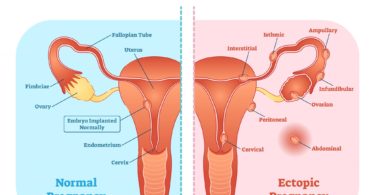Author:
Dr (Mrs.) Kiran S Kammar
Prof. and HOD, Dept of OBG
Yenepoya Homoeopathic Medical College and Hospital Mangalore, Karnataka
NUTRITION
NUTRITION (also known as Nourishment) is the material (in the form of food) provided to the cells and organisms, which is necessary to support life.
The diet of an organism is largely perceived by the palatability of food. The food we eat on daily basis, affects how our body works, how we heal and grow and how we maintain energy and strength for years to come.
A healthy diet is one that which helps to maintain or improve general health. A healthy diet provides the body with essential nutrition—adequate fluid, essential amino acids from protein, fatty acids, vitamins, minerals and calories; all which are needed to stay healthy. Good nutrition will also provide the phytochemicals and antioxidants which keep our body looking great with a feeling of staying young and perhaps even disease free.
A bad diet will give either too much or too less calories, not enough vitamins and minerals. A poor diet has a bad effect on health causing deficiency diseases like scurvy, anaemia; life threatening conditions like obesity and common chronic conditions like cardiovascular diseases, diabetes or osteoporosis.
Malnutrition refers to insufficient or excessive or imbalanced consumption of nutrients.
NUTRITION IN PREGNANCY
Without a doubt, a nutritious well balanced eating plan can be one of the greatest gift a female can give to the soon-to-be-born baby. Ideally adopting a healthy eating plan before pregnancy is always the best. No matter how many weeks are left for the countdown calendar, it is never too late to start!!!! Supplying the body with the tasty blend of nutritious food can not only improve the fertility, it also keeps the body feeling healthy during pregnancy and pave the way for easy labour. It also helps to establish the essential building blocks of growth and overall health for a child.
Pregnancy is one particular time in the life of a mother when her eating habits directly affects another life i.e. the growing fetus. The food consumed on a daily basis during pregnancy determines the basic nutritional health that a child is born with and provides a model for its eating habits during the childhood and beyond.
The day of conception and subsequent weeks thereafter is the time when it is more vulnerable to many of the problems and diseases. It is the time when the organs and the systems are forming within the fetal body. The energy used to create these systems comes from the energy and nutrients in the mother’s circulation, and around the lining of the womb. Hence perfect nutritional intake during the period of pregnancy by the mother-to be is more important.
Numerous studies in India and elsewhere have shown that in chronically undernourished women subsisting on unchanged dietary intake, pregnancy and lactation have an adverse effect on maternal nutritional status. Maternal undernutrition is associated with low birth weight and all its attendant adverse consequences. Majority of the female population in India is from the middle class or low economic status and hence over 75 % of pregnant women in India are anaemic and anaemia remains to be a major factor responsible for maternal morbidity, mortality and low birth weight. Studies also report that there has been a reduction in cereal intake inspite of the fact that food is available, accessible and affordable. There has been a progressive reduction in the pulse intake, which might be related to the rise in the cost of pulses. Intake of vegetables and fruits continue to be low. There has been a considerable reduction in the energy and fat intake. This might be due to the increasingly sedentary lifestyle in majority of the population and consequent reduction in energy intake. Calcium and micronutrient intake has been low throughout the period of pregnancy. All these data clearly indicate that in India women do not consume more food during pregnancy and lactation.
Studies undertaken have shown that there are adaptive changes during pregnancy. There is a reduction in BMR and physical activity and there might be some improvement in the storage of energy. The energy and nutrients saved due to these processes are sufficient to meet the increased requirements for nutrients during pregnancy. So long as there is no reduction in the habitual dietary intake, there is no deterioration in the maternal nutritional status either during pregnancy or during lactation. In well-nourished individuals, additional intake during pregnancy and lactation can result in excessive weight gain and this may lead to overnutrition later in life.
However, there are limits to adaptations under lower dietary intake during pregnancy. Studies from National Institute of Nutrition and also from other developing countries have shown that reduction in dietary intake below habitual levels, or increased workload above the habitual levels is associated with deterioration in maternal nutritional status and reduction in birth weight.
MATERNAL NUTRITION DURING LACTATION
The importance of breast-feeding in infant nutrition and survival has long been recognized. In the last three decades there has been a growing recognition that lactation may have profound effects on the maternal nutritional status and some effect on the maternal return of fertility after delivery.
Studies carried out at the National Institute of Nutrition have shown that among low income group population there was no increase in dietary intake during lactation. Lactating women continue to undertake habitual work. Lactation involves considerable nutrient expenditure for the mother; the estimated calorie expenditure varies between 400-700 kcal/day.
Studies on dietary intake of women who had conceived during lactation have shown that their dietary intake is essentially similar to the dietary intake of non-pregnant women from similar income groups. The average calorie intake is no more than 1200-1800 kcal/day; the diet is inadequate with respect to all nutrients. Obviously the dual stress of pregnancy and lactation may be expected to widen the already existing gap between dietary intakes and nutrient requirements. Investigations undertaken by the National Institute of Nutrition, indicate that irrespective of the duration of lactation, women who conceived during lactation weighed less in all the trimesters of pregnancy than those who conceived after lactation. Too close and too many pregnancies have adverse nutrition and health consequences on the mother.
INTERVENTIONS TO IMPROVE DIETARY INTAKE AND NUTRITIONAL STATUS
During the early stages of pregnancy, since the placenta is not yet completely formed there is no mechanism to protect the embryo from the deficiencies which may be inherent in the mother’s circulation. Thus, it is critical that an adequate amount of nutrients and energy should be consumed. Additionally the frequent consumption of nutritious food helps to prevent nausea, vomiting and cramps. Supplementing with diet rich in folic acid helps to prevent neural tube birth defects in the baby. Consuming food rich in iron helps to prevent anaemia and ensure adequate oxygen supply for the baby. A necessary step for the proper diet is to take daily prenatal vitamins that ensure the mother to deliver a healthy baby.
Research studies in India have shown that if pregnant women in whom there has been a reduction in habitual dietary intake or excess energy expenditure or whose body weight is less than 40 kg are identified and given adequate continuous food supplementation and antenatal care there is substantial improvement in outcome of pregnancy, birth weight and neonatal mortality. The efforts have to be taken to weigh all women as early in pregnancy as possible and to monitor their weight gain. Well-nourished women will be advised not to increase their dietary intake to prevent over nutrition and obesity. Women who weigh less than 40 kg should be identified and
? given food supplements consistently throughout pregnancy;
? given adequate antenatal care;
? monitored for weight gain during pregnancy.
? if weight gain is sub-optimal, efforts are to be made to identify the causes and attempt remedial measures.
The greatest challenge for a physician is to maintain the health of an individual than to cure a patient.





